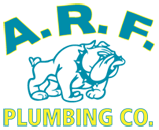Shared sewers and private septic tanks both have environmental pros and cons. Installing a septic system place the responsibility for proper installation, maintenance and use on the individual.
In South Florida, unless the neighborhood is presently all on septic, you probably won’t have much choice as to whether that home you’re thinking of buying is on sewer or septic. Unless the neighborhood is considering a petition to the town to switch to sewers (in which case you can usually agree to hook up or stay put).
There are pros and cons to each in regard to the environment. Both types of systems are designed to handle and treat so-called “blackwater” (wastewater from toilets) and “graywater” coming from our sinks, showers, dishwashers and laundry machines. On-site septic and community-wide sewer systems work in similar ways, utilizing micro-organisms to filter out bacteria, viruses and other disease-causing pathogens before releasing the cleansed water back into the environment.
In Broward, most people prefer to be on a shared sewer system if they have a choice, as the burden of keeping the system running smoothly falls on the local government, which presumably has the money and expertise to ensure that wastewater is properly treated across the region. Also, in a shared sewer system, wastewater is whisked away to a centralized treatment facility; anyone who has ever experienced a septic system backup on their property can appreciate what a benefit off-site wastewater treatment can be.
Another advantage to a shared sewer is that such systems are usually built to withstand heavy loads and can better accommodate periods of heavy precipitation or storm surges that might overwhelm smaller, poorly conceived or maintained home-based septic tanks, which are by virtue of their size and the laws of physics more prone to overflow and send contaminants into nearby surface and ground waters.
Septic systems have their proponents, though, who say that a professionally designed, installed and maintained system should hold up in even the biggest of storms. Experts say, “The only way to guarantee effective treatment is to have a trained professional ensure adequate unsaturated and suitable soil exists below the soil treatment area to allow for complete wastewater treatment.”
When homeowners don’t take care of their septic systems properly, though, they can become a nuisance for the surrounding ecosystem. Wastewater that is not properly treated can contaminate surface and groundwater and threaten public health. Improperly treated sewage can be the culprit behind the spread of hepatitis, dysentery and other diseases resulting from pathogens in drinking water, while also compromising the purity of lakes and streams. Additionally, flies and mosquitoes that are attracted to and breed in wet areas where sewage reaches the surface can also spread disease.
Improperly treated sewage can also lead to increased nitrates in local water supplies, which is dangerous for infants, pregnant women and those with already compromised immune systems. In and around lakes and streams, this influx in nitrates can lead to plant growth out of whack with the local ecosystem’s ability to handle it, resulting in oxygen-free “dead zones” devoid of marine and riparian life altogether.
To learn more about installing your septic system, call ARF Septic at (954) 962-7330
